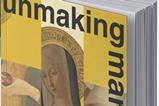In the next of our series on finding different ways to connect with God, Claire Musters shares how she came across the ancient practice of the Daily Examen and how she has come to value it.

It was reading the Sensible Shoes fiction series that compelled me to try some spiritual disciplines for the first time. A firm favourite with the Woman Alive Book Club, the series is written by Sharon Garlough Brown, and tells the story of four women who attend the same spiritual formation group at a retreat centre. Sharon is a spiritual director herself, and manages to weave into the women’s stories ways to connect with God deeply during everyday life. As the women are introduced to new spiritual practices by their course facilitator, so too is the reader as Sharon provides instructions for each one. It was in her books that I first discovered the Daily Examen.
Ignatius of Loyola developed the Daily Examen in the 16th century. He believed it was a gift from God to be utilised twice daily (at noon and at the end of the day). It focuses on prayerfully reflecting on the day’s events to discern God’s presence and his will for our daily lives.
As someone who usually sets aside time with God in the morning, it was interesting to switch to the end of the day, looking back over its events. I was particularly intrigued by a quote from the character and course leader Katharine: ’Pay attention to your strong reactions and feelings, both positive and negative. The Spirit speaks through both.’ I have certainly found that to be the case, and, while I don’t utilise the Examen every day, have found it to be an enlightening and enriching experience.
Using the Daily Examen
It can be helpful to view the Examen as a way of sitting with Jesus and talking through what happened during the day. It is about slowing down to pay attention to the details of our lives, which we might otherwise overlook, so you might find it helpful to visualise snapshots of your day in your mind.
- Be still and become aware of God’s presence. Ask the Holy Spirit for guidance and begin looking back over the day. It can be helpful to clarify times of being particularly aware of his presence. Were there any times when he seemed absent?
- Review the day with gratitude. Thank God for any of the special gifts he provided, looking out for the smallest details such as interactions with friends, food, nature.
- Pay attention to your emotions. We can detect the presence of God in our emotions, so it can be helpful to think about when you felt most alive and energised, and when we felt drained or anxious. Where there times when you resisted God? Why? God may bring to mind things that need confession, and, once you have done that, you can receive his grace and forgiveness.
- Concentrate on one feature of the day. There may be something that seems to be particularly highlighted – perhaps because God wants to teach you something. It could be positive or negative; the important thing is to stay with it, and pray as God leads.
- Look forward to tomorrow. You can take the lessons from one day into the next, bearing in mind how you have responded and worked with the Holy Spirit today. If there are any challenges you know you will face tomorrow, prayerfully bring them before God before asking for hope and a sense of his love.



































No comments yet